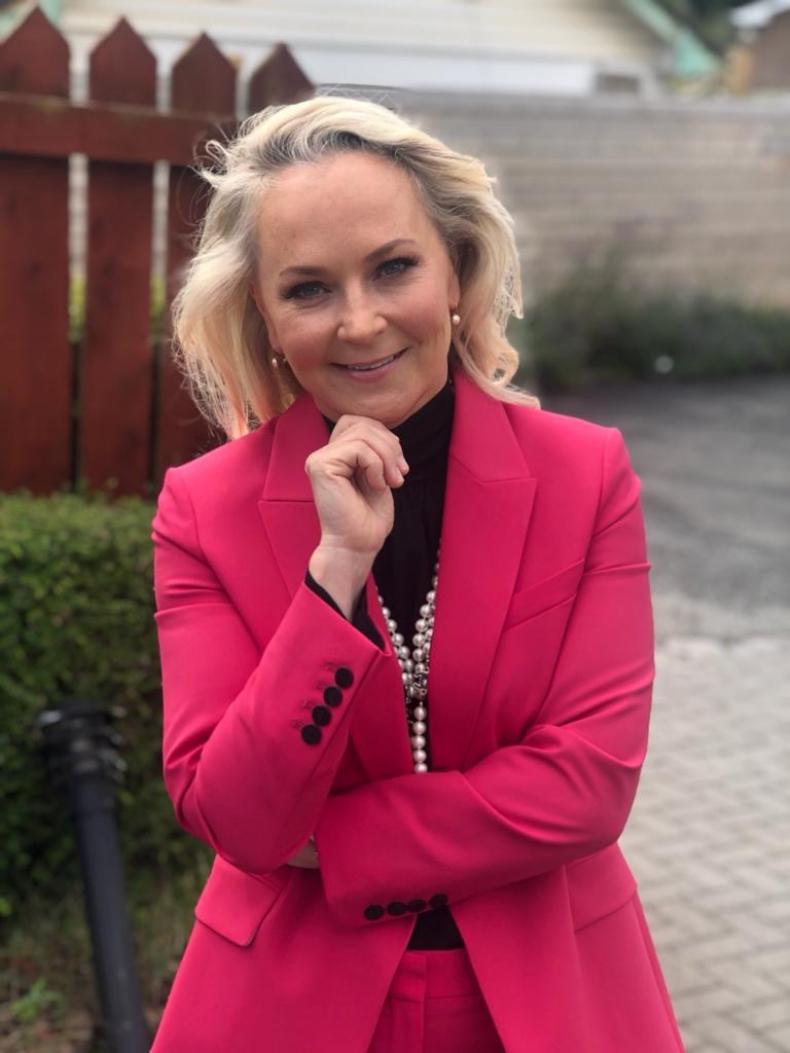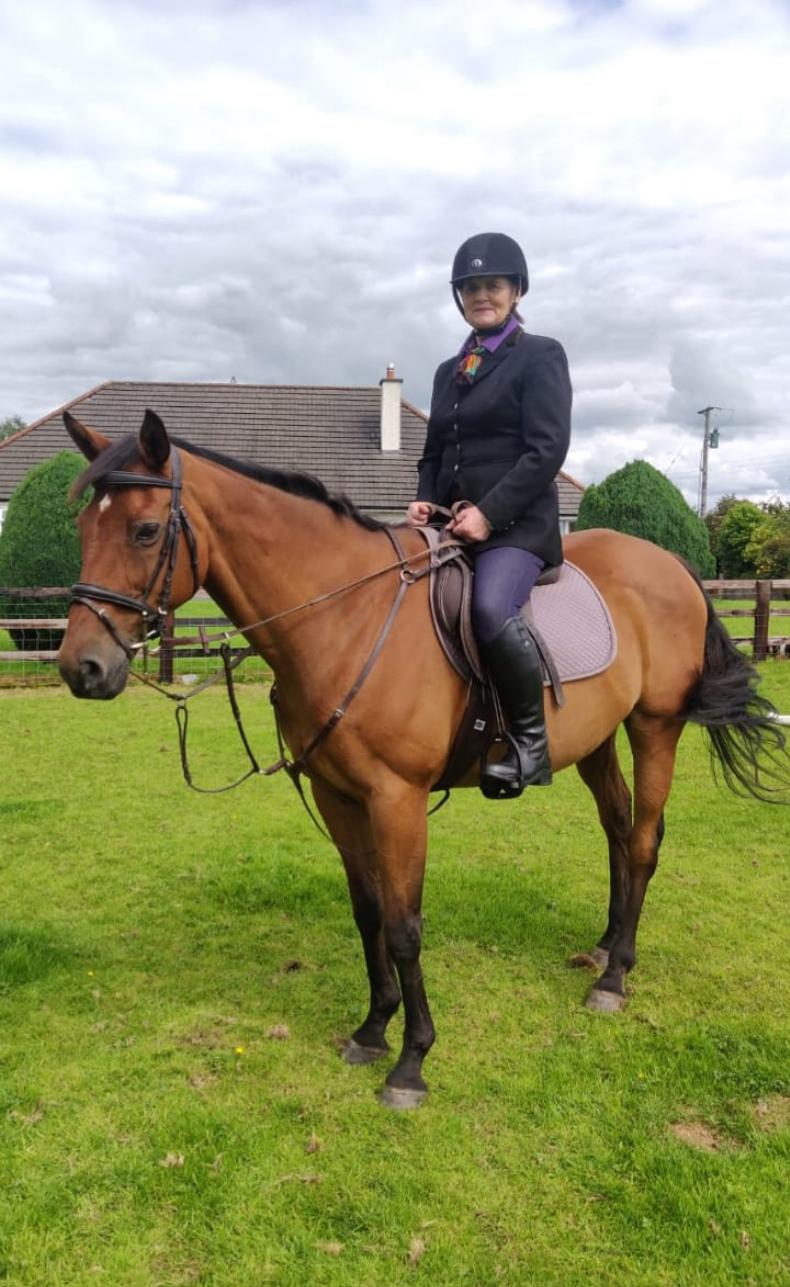It’s a difficult pill to swallow – that overweight or obese is putting us at risk of poorer outcomes if we get COVID-19 – but swallow it we must – and take action.That’s according to both Teagasc researchers and Dr Eva Orsmond of Orsmond clinics and Operation Transformation fame.
It’s a difficult pill to swallow – that overweight or obese is putting us at risk of poorer outcomes if we get COVID-19 – but swallow it we must – and take action.
That’s according to both Teagasc researchers and Dr Eva Orsmond of Orsmond clinics and Operation Transformation fame.
Teagasc says that farmers are highly vulnerable to COVID-19, due to their older age and poor health status. This is according to a study, carried out by Teagasc and the National Centre for Men’s Health, IT Carlow collaboration*. The obesity issue is a big part of the “poor health status” ranking.

Dr Eva, whose specialty is public health medicine and who runs weight loss clinics in Dublin, Cork and Galway, has been beating the obesity awareness drum for many years.
As well as people’s immune cells being less effective at killing viruses if they are overweight, their visceral fat (the fat around their internal organs) produces damaging inflammatory hormones.
“Basically, you can say that if you have a lot of visceral fat, you have low grade inflammation in your body,” Dr Eva says. “This inflammation caused by the visceral fat has a role in insulin resistance (Type 2 diabetes), as well as exacerbating conditions like osteoarthritis and it is the same inflammation that is put into overdrive when you have COVID-19.”
According to a recent global study**, obesity increases risk of death by COVID-19 by 48%, the risk of ending up in hospital by 113% and the likelihood of admission to an Intensive Care Unit by 74%.
The Teagasc report highlighting obesity concern among farmers is entitled Essential and Vulnerable: Implications of COVID-19 in Ireland and was published recently in the Journal of Agromedicine. Lead author, Dr David Meredith highlights the older age and poor health profile of the rural and farming population.
“This makes these communities vulnerable to COVID-19 infection,” he says.
“Preventing the horrific mortality and ill health consequences of COVID-19 infection poses a huge and ongoing challenge in Ireland, and among the farming community over the coming months.”
Farmers need to pay particular attention to maintaining their health this winter, colleague Dr Noel Richardson, director of the National Centre for Men’s Health, IT Carlow, says.
“Particular emphasis should be given to maintaining a proper diet and focusing on taking regular exercise to maintain health. The Irish farmers’ health research* shows that 86% of farmers are overweight or obese, which is both a health and COVID-19 risk factor.”
Doctoral scholar in farmers’ health, Ms Diana van Doorn at Teagasc/IT Carlow, adds this:
“Obesity puts you more at risk not only with COVID-19, it is also a risk for cardiovascular disease and for farm injuries.”
Dr Eva, whose specialty is public health medicine and who runs weight loss clinics in Dublin, Cork and Galway, has been beating the obesity awareness drum for many years. She is doing so now even more loudly.
“Boris Johnson in the UK is highlighting overweight and obesity for the worst outcomes of COVID after his own experience of the illness. Why are we not talking about it in Ireland?” she says.
“Obesity is a huge modifiable risk factor. There is no long-term planning in Ireland (regarding obesity) and there should be,” she says.
“We are tippy-toeing round it, not talking about this personal responsibility at a time when 10% of the Government’s health budget is going on treating Type 2 diabetes. Type 2 diabetes is 99% of the time a self-created condition. No point even talking about anything else,” she says.
“Type 2 means your beta cells are producing insulin, but the insulin is not working because of the visceral fat around the pancreas, inside it and inside the liver.”
Home economics class compulsory
Dr Eva wants the Government to take action.
“There should be long-term investment in health education. Home economics should be compulsory in schools, so that people have the tools to look after themselves. People go on about sport being important, but you can’t exercise away a bad diet. You need to know the good foods and how to cook.”
Dr Eva’s stance on weight loss comes in three parts.
“I still have people who come see me because they genuinely believe there is something wrong with their metabolic rate because they can’t lose the weight,” she says. “The reality is there is nothing wrong with it. It is just that they can’t get their head around how little we actually need to eat to survive. That’s number one.”
She also says that she can only help people to lose weight if they want to lose it themselves. This applies also to maintaining their weight loss.
“One lady said to me ‘I want to lose the weight once and for all and starting living a normal life’. I said, ‘Sorry, what is normal life? Does it mean that you can go to your favourite café and have that mega portion of dessert?’ That’s not normal life! Normal life is that you continuously watch your weight. You hear all these theories about metabolic rates being messed up by dieting, that the body wants to get back to its maximum weight. Yes, it is very difficult to get rid of certain habits but you can do it.”
Waist measurement – key to health
Waist measurement is an important indicator of the amount of visceral fat you have, Dr Eva states.
“One of the risk factors for metabolic syndrome (which can lead to Type 2 diabetes and cardiovascular conditions) is if your waist measurement is more than half of your height.
“Say you are 160cm high. Half that would be 80cm, but if your waist measurement (at belly button level) is 90cm, that means you have 10cm extra, which is 10kg weight too much.”
Dr Eva treats many people who have been diagnosed with Type 2 diabetes, including Monica Skelton, profiled over.
Reversing Type 2 diabetes – according to Dr Eva“A lot of research has been done by Professor Taylor in the UK about very low calorie diets (vlcds) reversing Type 2 diabetes, but there are still a lot of GPs out there who do not highlight this to people, but actually give them tablets at the first visit.
“The first line should be to give them six months to get their sugar levels down by weight loss and diet.
“Only if they fail the HbA1c (three month average blood sugar test) should they be prescribed metformin. This doesn’t happen regularly.”
Into ketosis
The diet to reverse Type 2 diabetes involves putting the body into ketosis, a process that occurs when a low carbohydrate diet is followed. Some food groups are excluded in order to do this and supplements are given to provide the missing vitamins and minerals during this period. Other foods are reintroduced over time.
Monica Skelton from Co Meath lost 3st 3lbs since beginning her weight loss plan with the Orsmond clinics.
A mother of seven and grandmother of 10 involved in farming, she says she put on some weight with each child and was a “good few stone overweight” by 2020.

Monica Skelton pictured before embarking on her weight loss plan with the Orsmond clinics.
“With all of that came a diagnosis of diabetes Type 2 at the end of February. I was so annoyed. I knew I had it, as I was tired all the time and had been sleeping badly and cuts I got around the yard were slow to heal. In the new year, I had a goal to lose 45lbs, but that resolution had gone by the wayside, so it was my mind in February to contact Dr Eva about her weight loss programme.
“When I got the diagnosis at the end of February, my GP said: ‘I won’t put you on tablets, go off and lose some weight and come back to me in eight weeks.’ I got an appointment with Dr Eva very soon after and I haven’t looked back since.”
While Monica thought the very low calorie diet was extreme initially – it involved eating a lot of vegetables in the form of soups and stir fries, taking food supplements and consuming no meat, wheat or dairy products for the 12 week period during which her body went into ketosis – she soon saw her weight “falling off”, she says.
“By the time I had lost two stone, my HbA1c test had gone back to pre-diabetes levels. I was thrilled and so was my GP. I found it so easy to do. I wasn’t hungry at all.”
As well as paying for consultations and continual monitoring phone calls with dietitians during lockdown, Monica purchased some products and supplements from the clinic as well, including porridge, bread and snacks.
“I drank 2l of water a day as well. I didn’t feel like I was on a diet, it was just like I had completely changed my way of eating and thinking.”
Because she was motivated to lose weight it was easier to achieve, she says.

Monica Skelton pictured on a horse for the first time in 49 years having lost over three stone.
“I had made up my mind back in February. I said ‘I don’t want to be testing my fingers and taking tablets or have it affecting my eyesight or losing limbs.’ I’ve seen that happen. I think changing my eating patterns and habits is the best thing I’ve ever done.”
Losing weight has made a difference to her in lots of other ways too, she says.
“I actually got up on a horse recently after 49 years. That’s something, isn’t it? I also get to buy new clothes, having gone from a size 20 to a 12. Some people don’t recognise me even with the mask off these days!”
She now watches her weight and fasts at times also.
“I introduced normal foods back in gradually, but now I choose to eat more healthy food and I feel better and fitter and sleep more soundly because of it.”
*The ‘Farmers Have Hearts’ Cardiovascular Health Programme is a collaboration between the National Centre for Men’s Health (NCMH) at IT Carlow, Teagasc, IHF, HSE, UCD and Glanbia. 868 farmers participated in the programme and data was collected at 16 mart and 16 agri-branch locations in the south, east and midlands of Ireland.
**A collaborative study carried out by the University of North Carolina, Saudi Health Council and World Bank
Recent Irish research on farmer health is available at https://www.teagasc.ie/publications/2020/farmers-have-hearts-cardiovascular-health-programme.php.
www.orsmondclinics.com
Read more
Coronavirus Level 3: what does it mean for farmers?
Healthbytes





SHARING OPTIONS: